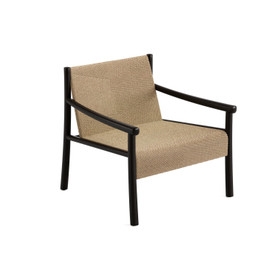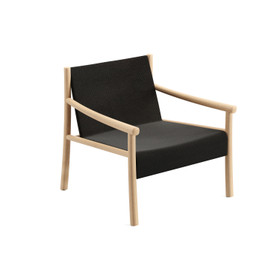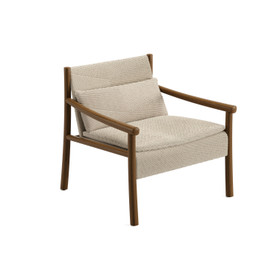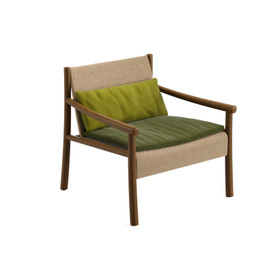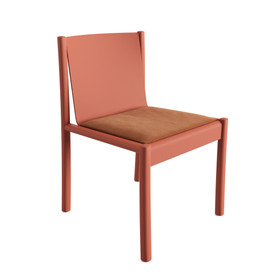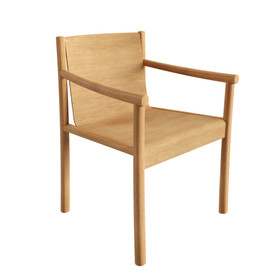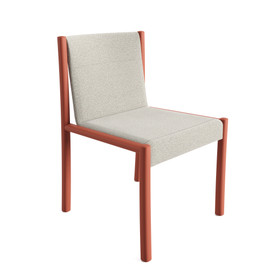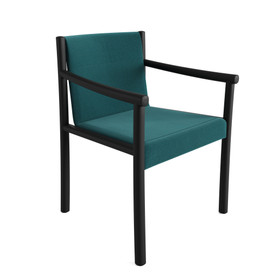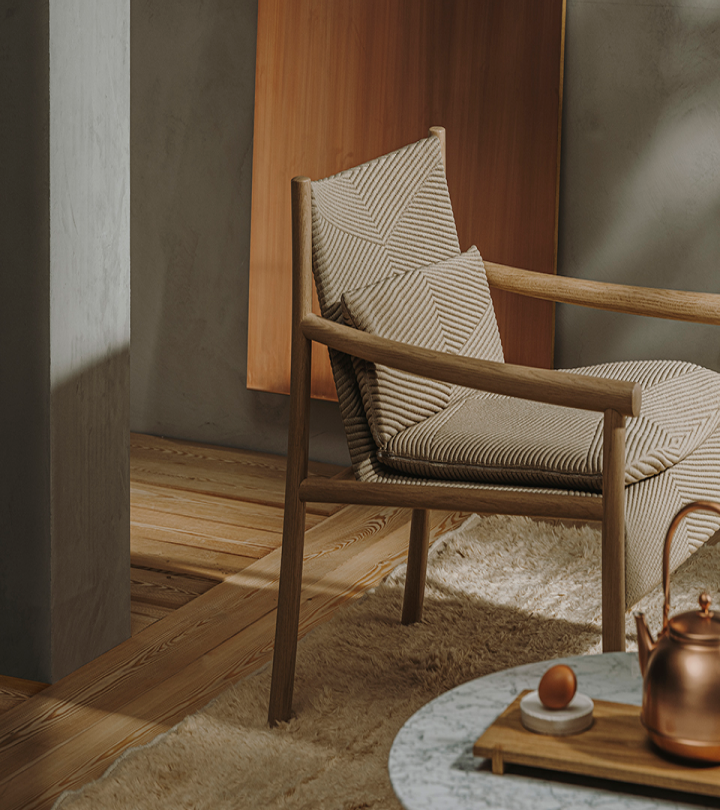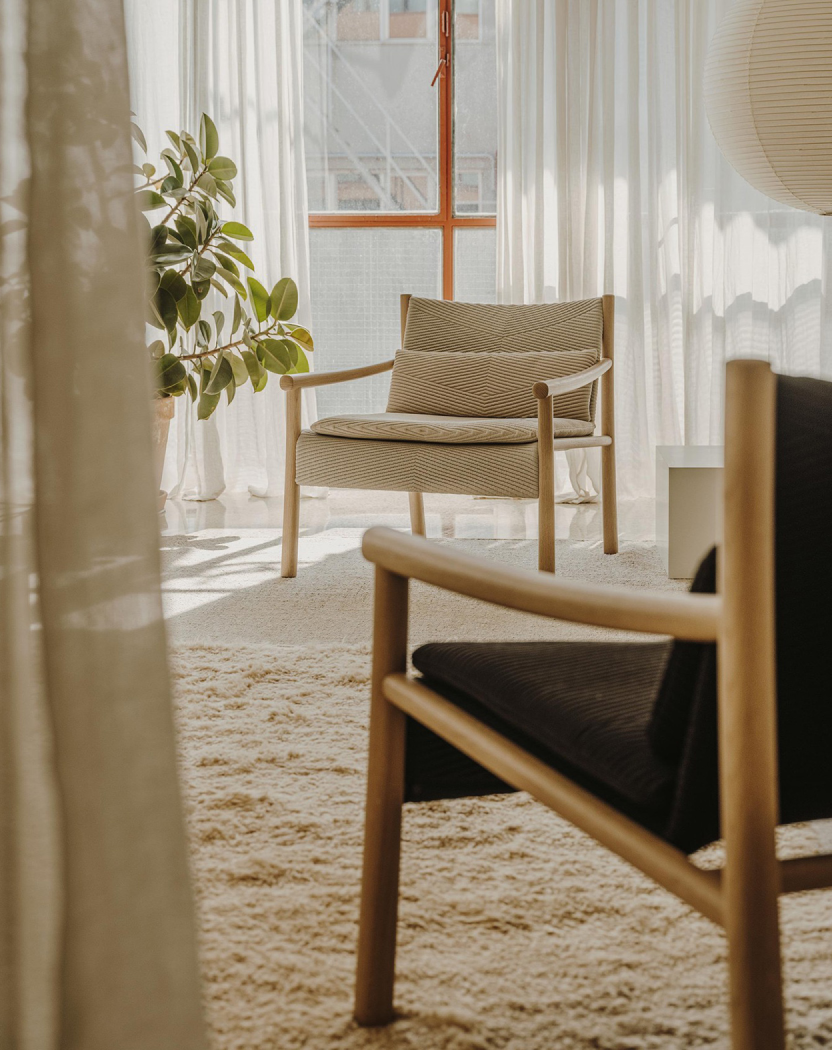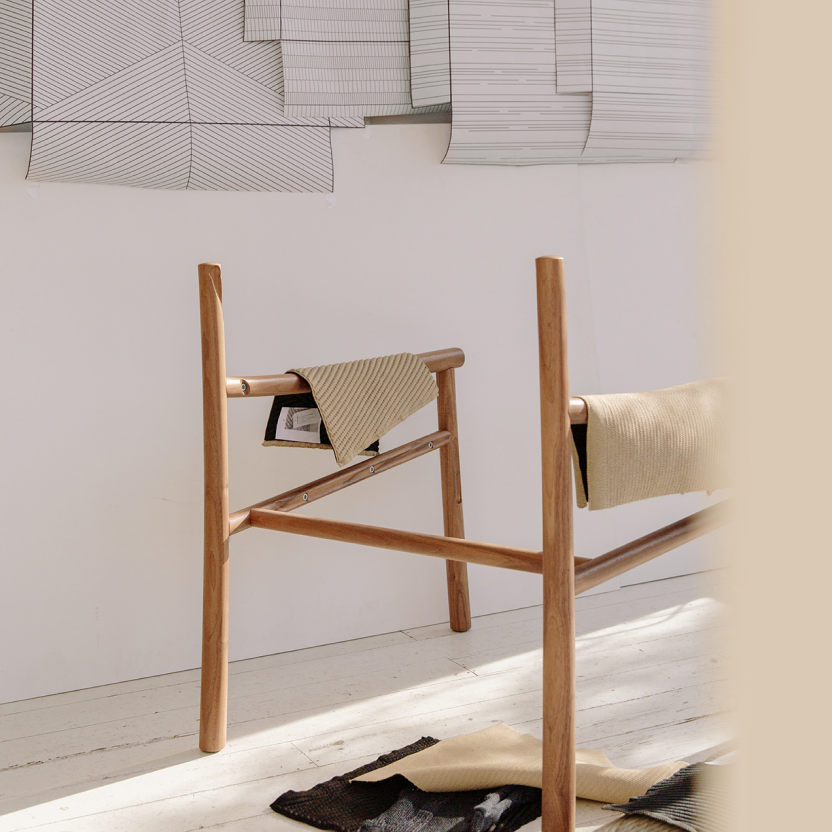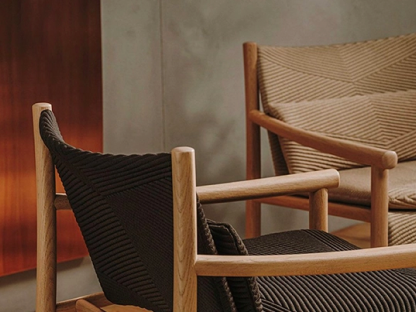
Kata
Lightweight in form and environmental footprint, Kata is designed with circular sustainability at its core. Kata, available in both lounge and chair versions, takes inspiration from artisan-made wood and woven straw chairs and reimagines the near universal typology using contemporary, sustainable solutions in warm expression. Kata finds form in juxtaposition—an evocative gesture in the movement between material presence and minimal silhouette, softness and strength, tradition and technology.
Kata Lounge combines traditional craftsmanship with soft technology and is suitable for multiple indoor and outdoor applications, from residential to contract. The solid wood structure supports the body, made of 3D fabric with a delicate weave, designed specifically for this chair. The upholstery is made from post-consumer polyester yarns processed into lightweight, durable fibers. The fabric has been technologically conceived to perfectly adapt to the seat stem, reducing material waste to a minimum, and is available in two types: 3D knit with graphic pattern and internal micro padding or 3D knit with striped pattern (the latter is also suitable for outdoor use). Additional back and seat cushions can be customized, drawing from either Arper's wide selection of fabrics or 3D Knit covers with graphic patterns. The Kata Chair is available with options of a wood or upholstered shell. A combination of a solid wood frame and a delicately textured, custom patterned shell is available with and without armrests and in a range of finishes. Comfort can be further enhanced with optional seat cushions. The upholstered version and cushions are enhanced by decorative stitching, available in contrasting colors or tone-on tone. The collection is FSC-certified with construction techniques and easy disassembly, designed for greater sustainable impact.


Kata: An Interview with Altherr Désile Park
Design By

Altherr Désile Park
2021 - Collection Extension, 2024
Downloads
Awards

FX International Design Awards, UK
2021

Mixology North 21 Awards, UK
2021

Delta Awards, ES
2022

People's Choice - AZ Awards, USA
2022

ADI Design Index, IT
2022




FSC CERTIFIED WOOD
Kata uses solid wood from certificated FSC-production, meaning that it will last a very long time ensuring the longevity of the product. Hardwood requires a long-term investment and necessitates substantial time to grow and mature and that is not compatible with fast production cycles.


RECYCLED POLYESTER
Kata is created using a strong and durable polyester fiber made from post-consumer recycled plastic bottles. Because the recycling process transforms the fiber on a molecular level, there is no difference between recycled polyester and virgin polyester: it looks and behaves like wool, but with excellent stretch and stain, water, light and weather resistance.


FROM WASTE TO FABRIC
Roughly 1-kilo of waste — or about 48 half bottles — is used to produce 1-kilo of yarn. Not only does this mean that there is less plastic going into landfills, the process also uses much less energy than producing virgin polyester and supports the recycling system by providing yet another commercial application for recycled goods.



WOOD
Kata Chair celebrates the natural beauty of wood with a unique texture and refined finishes, in both a visual and tactile experience.


FINISHES
In addition to natural and black oak, the Kata Chair is also available in a new rust-stained oak finish.


VERSATILITY
A complete range of chairs and armchairs in exposed wood or in upholstered and padded versions make the Kata collection suitable for many situations, from dining to meeting.
Inspirations


Kata


Kata


Kata


Kata


Kata


Kata


Kata


Kata


Kata



















